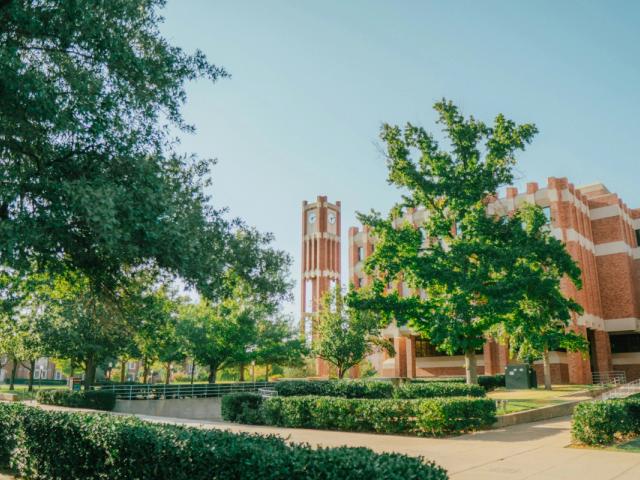

Net Zero on Campus
As the risks and impacts of climate change become more visible every year, the call for net-zero emissions is no longer restricted to country-level commitments. It has become equally important for non-state actors, like business corporations and large institutions, to establish targets and pathways to net zero by mid-century or sooner. Universities and colleges across the world have the unique opportunity in this race to net zero, to not only build strategies to reduce emissions within their operations, but to also champion knowledge, climate research, and action within their communities.
With university net-zero commitments rising worldwide, the SDSN has developed the Net Zero on Campus Initiative in collaboration with the Climateworks Centre, Monash University, Second Nature, and the EAUC. Together, they created a guide (in English and Spanish) and accompanying online toolkit to help universities and colleges accelerate their climate action plans, while creating new communities of practice.
Online Toolkit
As an appendix to the guide, this online toolkit provides a wide array of examples of resources (including case studies) that can support the planning and implementation of decarbonization efforts on college and university campuses worldwide. Within the toolkit, resources are categorized by campus action area: energy, mobility, facilities, waste and recycling, value chain, and beyond campus operations.
Energy
As universities and colleges provide spaces for working, studying, teaching, and living, they consume significant energy to power lighting, technology, appliances, hot water and space heating or cooling. Universities and colleges can contribute to accelerating the energy transition by reducing their energy demand and supporting renewable energy generation.
Mobility
Addressing the ways people travel to and from campus will be critical in reaching net-zero emissions. Key strategies include: avoiding the need to travel where possible; reducing the reliance on private vehicles and encouraging sustainable options like walking, cycling, or public transport; and improving campus fleet and freight emissions.
Facilities
Campus facilities include buildings for working, teaching, studying, laboratories, residence, and recreation. Facilities span across the areas of energy, materials, transport, and waste, all of which need to simultaneously contribute to a college or university’s net-zero commitment. Strategies include replacing carbon and energy-intensive equipment, establishing green laboratories, and retrofitting campus buildings.
Waste and Recycling
The waste sector contributes a proportionally small amount of greenhouse gases compared to the energy and mobility areas on campus. However, to reach net zero, it is crucial that emissions from the waste sector are addressed, such as via the implementation of a circular economy and material recovery strategies on campus.
Value Chain
When purchasing equipment and supplies for a university or college, it is important that institutions follow sustainable procurement practices in order to ensure that they target Scope 1, 2, and 3 emissions. This extends to procurement of appliances and equipment, catering, materials for laboratories and libraries, among others.
Beyond Campus Operations
There are several aspects of climate action beyond campus operations that play a key role in college and university decarbonization efforts. These include the role of universities and colleges acting as an amplifier of change, engagement with student bodies, securing financing for net zero, and encouraging net-zero aligned education, research, and innovation.




Featured News
Featured Resources


Accelerating Education for the SDGs in Universities: A Guide for Universities, Colleges, and Tertiary and Higher Education Institutions

Net Zero on Campus Case Studies
Team





